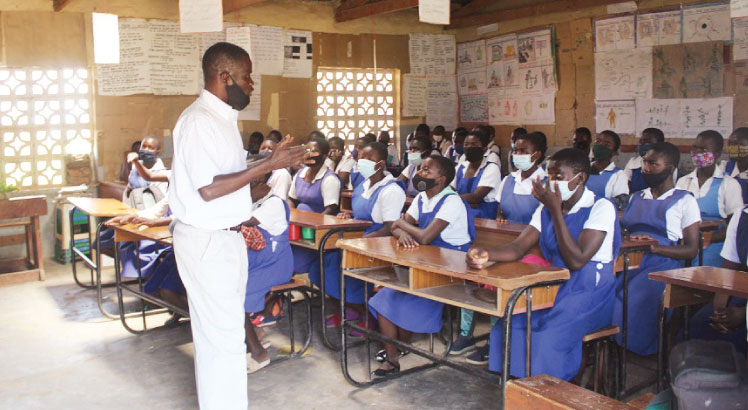Confessions of a troubled cancer survivor

In Malawi, being diagnosed with cancer is almost getting a permanent licence to die. But even to survive it, is a bitter-sweet experience.
He was, just like every eight-year-old, a playful young and innocent child, fond of playing soccer with peers. But one afternoon, while dribbling the ball past his friends, he felt weak—knees failing to hold and flex the muscles. That was in 1992.
“I felt unconsciously conscious; some kind of a dizzy—almost as tired as someone who has been running,” he says.
Then it vanished. Dazed, he recoiled from the pitch and headed home. His mother, like every mother, played the motherly counseling—making sure the young Chikhulupiriro Ng’ombe is happy like every child.
Little did the mother know that her son, who was then in Standard Four, is developing a problem that will change his life forever.
“I experienced the same feeling of weakness thrice in a space of a month,” says Chikhulupiliro.
That was the time his parents began to realise there was something terribly wrong with their son. It did not take long for doctors at the Queen Elizabeth Hospital (QECH) in Blantyre to diagnose Chikhulupiriro with leukemia (cancer of the blood).
“I was afraid, but a little naïve. My mother only said I had a problem which doctors can cure. She even said it was good because the problem had been detected early,” he explains.
But it was not supposed to be doctors in Malawi. The young Chikhulupiriro had to be flown to a hospital in South Africa because, he claims, there was no cancer treatment in Malawi.
For six months, says Chikhulupiriro:”I was a boy without friends, out of school, stuck in a hospital ward of a foreign country for all the wrong reasons.”
He says after strict dosages of chemotherapy, doctors managed to treat the cancer.
“Everything about me after I had been discharged changed. I have long-term effects that will always be with me. Though I managed to pick up with school to the extent that I hold a university degree today, I am not as intelligent as I used to be. In fact, my memory easily fades,” he narrates.
Not only that.
“Because of chemotherapy, I developed epilepsy—something I still have to date and something I am getting treatment for. Imagine 20 years on, I am still taking drugs to manage my epilepsy,” he says.
He does not end there.
“Isolation was the worst thing this disease left to me. I am not supposed to be with so many people. I am prone to bacterial infections. So, I grew up with few friends—all of them had to be recommended to me by my mother,” he says.
But beyond that, Chikhulupiriro says the worst memory stuck in his brain is the negative economic effect the treatment had on his family.
“I was born in a rich family. My father, as a lawyer, had money and investments. But with my hospital bills reaching K3.8 million—the family had to let go a number of investments just to let me live,” he says.
Today, Chikhulupiriro, who lost the father some years ago, is married and is running the Cancer Survivors’ Quest.
“I noted that whenever people talk about cancer in the country, they always talk about cancer awareness and sometimes talk with cancer patients. You barely hear from the survivors—those who have been there and struggled and know in detail about,” he says.
Chikhulupiriro calls cancer a ‘scary disease’. But he understands that it is a disease that can also be cured—and he is a living example.
“People die from cancer not because it is a scary disease. Rather, because most people are too poor to get treatment in reputable hospitals,” Chikhulupiliro concludes.





